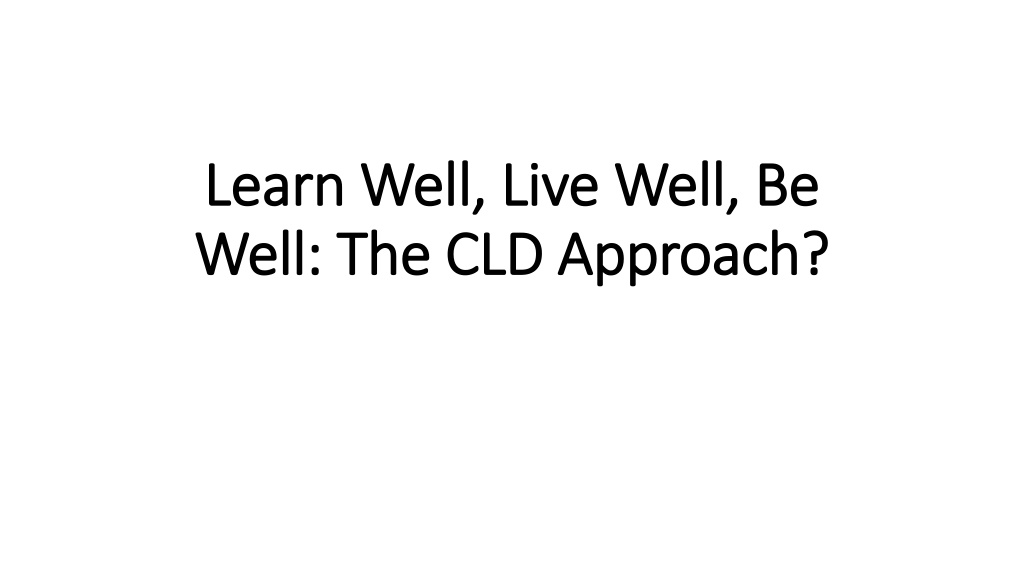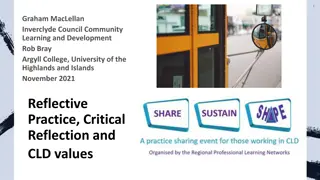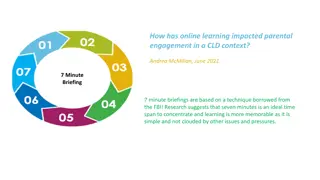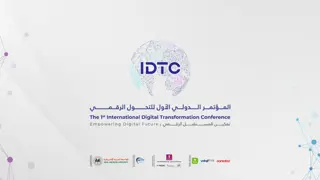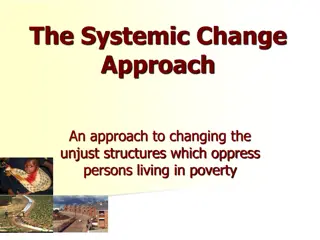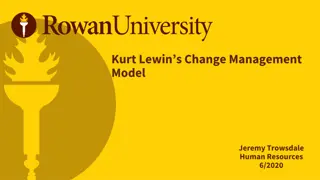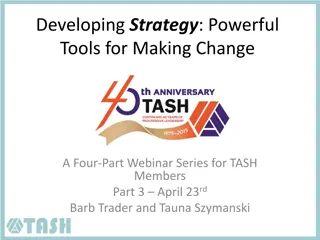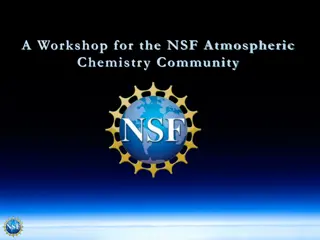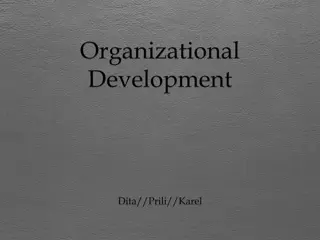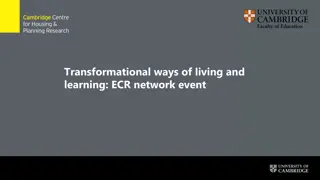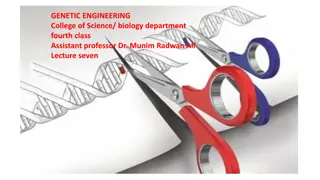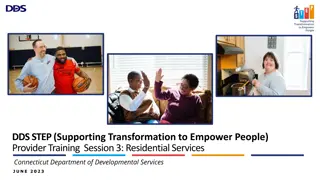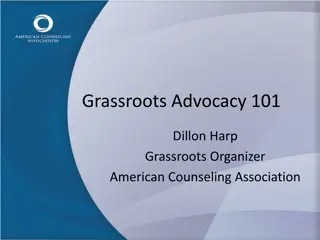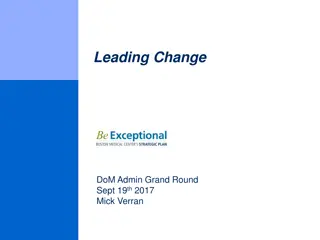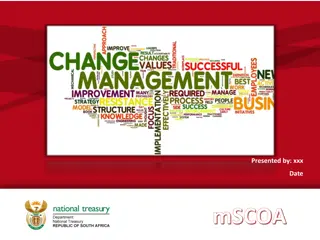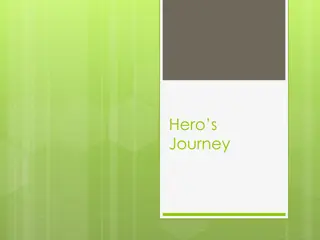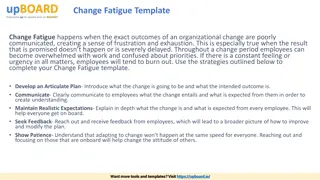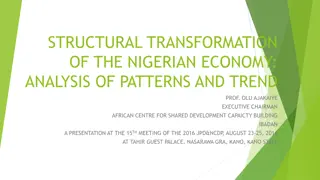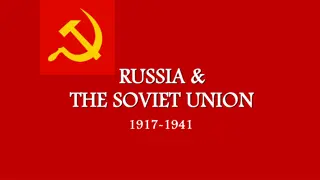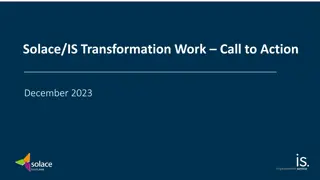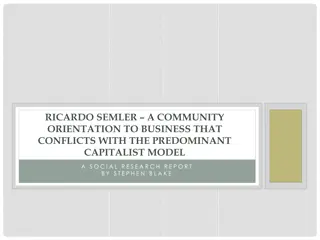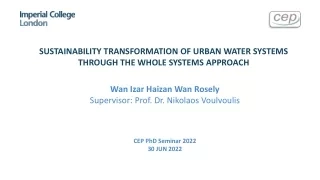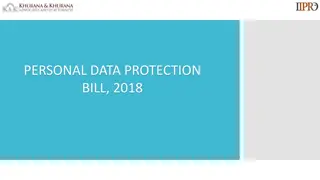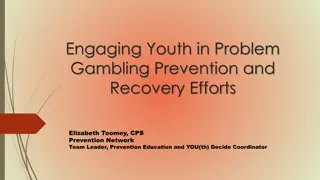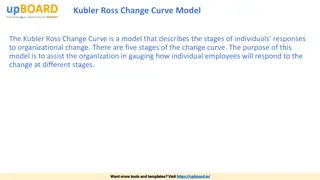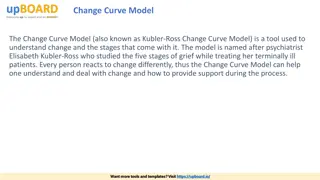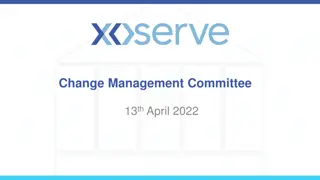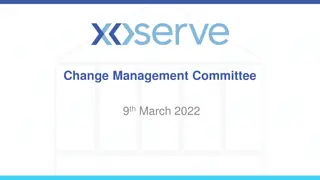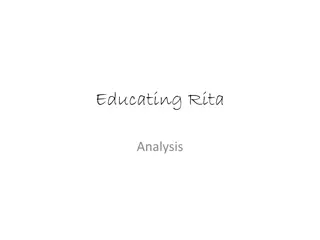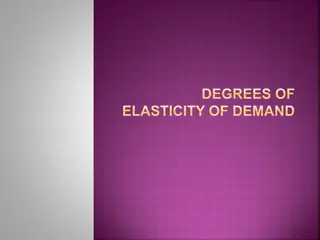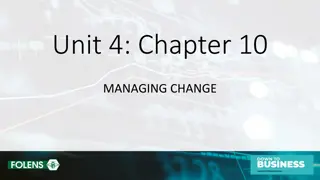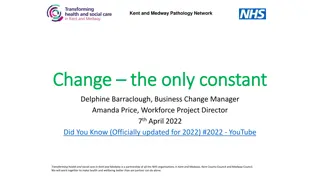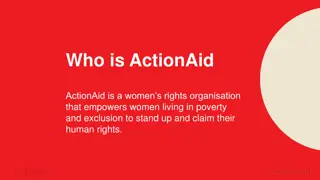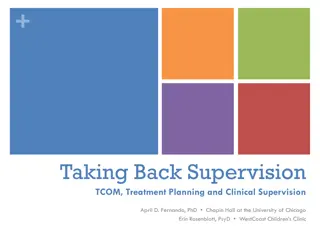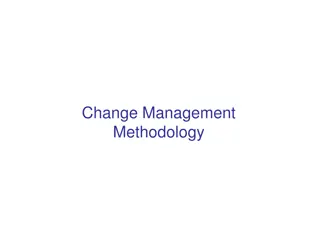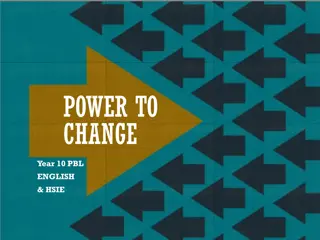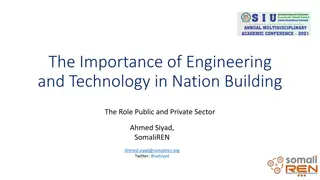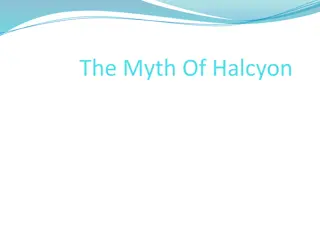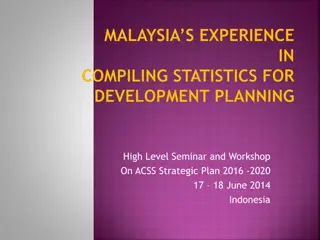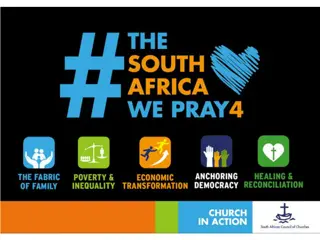Empowering Change: The CLD Approach and Personal Transformation
Explore the transformative power of the CLD approach in personal and social spheres. Dive into the interconnectedness of individual growth, community action, and structural challenges. Reflect on the need for both personal and collective change to address issues like poverty, agency, and identity. Consider the radical potential for self-reflection and societal transformation in the 21st century.
Download Presentation

Please find below an Image/Link to download the presentation.
The content on the website is provided AS IS for your information and personal use only. It may not be sold, licensed, or shared on other websites without obtaining consent from the author. Download presentation by click this link. If you encounter any issues during the download, it is possible that the publisher has removed the file from their server.
E N D
Presentation Transcript
Learn Well, Live Well, Be Learn Well, Live Well, Be Well: The CLD Approach? Well: The CLD Approach?
The Liaison Co The Liaison Co- -Ordinator Tom Leonard Tom Leonard Ordinator efturryd geenuz iz speel iboot whut wuz right nwhat wuz rang boot this nthat nthi nix thing a sayzti thi bloke nwhut izzit yi caw yir joab jimmy am a liaison co-Ordinator hi sayz oh good ah sayz a liaison co-Ordinator just what this erria needs whut way aw thi unemployment inaw thi bevvying nthiboyz runnin amock nthi hoossyz fawnty bits nthi wummin n tranquilisers it last thiv sent uz a liaison co-Ordinator sumdy wia degree in fuck knows whut getn peyd fur no known whut thi fuck ti day way it
Poverty Safari: the argument Poverty Safari: the argument . You are no use to any family, community, cause or movement unless you are first able to manage, maintain and operate the machinery of your own life. This doesn t mean resistance has to stop. Nor does it mean power, corruption and injustice shouldn t be challenged, it simply means that running parallel to all of that necessary action must be a willingness to subject one s own thinking and behavior to a similar quality of scrutiny. That s not a cop out; that s radicalism in the 21stcentury . how do we radically transform the system, but also, how do we radically transform ourselves? (McGarvey, 2017) The language of personal development cannot be left to one set of advocates and interests alone eg Follow your dreams; you re worth it; Live in the moment; The body achieves what the mind believes!!! The political is personal and the personal is political Private troubles and public issues are interconnected Problem definitions and available solutions are interrelated Possibilities for action are always mediated by and through structural factors
Live well, Be well? Live well, Be well? Agency (action) Personal troubles (private remedy) Community Shared/collective Identities/interests Micro (individual) Macro (social) Public issues (public remedy) Structure (constraint)
Learning well? Recognition of need for wider change Collective action for social change Recognition of need for personal change Passive/inactive/ unhappy .
Poverty Safari: Chapter 13 The Outsiders Poverty Safari: Chapter 13 The Outsiders What are the key themes and ideas? In what ways is it relevant to your context of practice? What did you find yourself agreeing with or wanting to challenge? What questions did you find yourself asking after you had read it? How does it help you in asserting some degree of autonomy as a practitioner?
The Outsiders: Challenges for practitioners The Outsiders: Challenges for practitioners Importance of relationships: quality, nature and quantity of local relationships? Regeneration a byword for opportunism, mismanagement and exploitation : Empowerment/Place-making/Co-production: Community as resource for government? Decision-making a messy, top-down business, conducted over the heads of the people who live there : Participation as process for legitimating policy? Criticism carefully managed; fed into an evaluation process, which, like the planning process, often leaves local people locked out or invited to take part in some contrived or tokenistic way told to be more constructive : Democracy as approval? Projects that are rolled out less about identifying the community s shared aspiration than about deciding what the community needs and then corralling, manipulating or compelling people towards it : Empowerment as managerial procedure? Multi-agency structures: a problematic industry in themselves . [becoming] such vast bureaucracies that they are rendered inflexible and unresponsive : Decentralisation of responsibility rather than power? Identity crisis within community learning and development: Values, claims, skills, loyalties, resources????
CLD: Contradictory intentions Whilst from one side community work is concerned with the encouragement of local initiative and decision-making, from the other it is a means of implementing national policies at the local level. (Jones, 1980) Community workers are often called on by government to contribute to the peaceful management of the process of economic change to help people adjust to the insecurity and fragmentation of their lives. To what extent [is community development] concerned with social justice, with respecting the dignity and humanity of all, with their right to participate in decisions which affect them, with mutuality, or equality? Or are they in reality advocating community work as a means of helping people to adapt their way of life to the changes they have had imposed on them by wider economic and political forces little concerned with their needs and desires? (Craig, (1998) Community development in a global context , Community Development Journal 33 (1). NB Relationship between context, purpose and practice
Maximising professional agency: managing competing demands Policy Top-down Managerial procedure Provided/invited political spaces Community learning and development Bottom-up Democratic process Demanded political spaces Politics
Assessing areas of relative autonomy Assessing areas of relative autonomy Professional status/legitimacy Job Description/clarity about role Management requirements/relationships/colleagues Policy documents Press reports Local political culture Local relationships Links elsewhere Possible Alliances Political/theoretical analysis of problems Spaces for political/theoretical discussions/contestation Other???
Clarity through specificity: working both sides of the equation? Double conversations? Clarity through specificity: working both sides of the equation? Double conversations? STRATEGIC PARTICIPATION: THE INVITED SPACES OF POLICY STRATEGIC NON-PARTICIPATION: THE DEMANDED SPACES OF POLITICS Making structures, processes and policies work more democratically and effectively within their own terms Strengthening democratic processes outside of governance structures and mechanisms to challenge undemocratic processes Holding politicians and institutions to account Translating between policy and politics Encouraging and resourcing community participation based on local concerns (arising from or raised in invited spaces as appropriate) Ensuring processes have grassroots support: maintaining local relationships; broadening support base Challenging the ways in which problems are framed in policy and practice Capacity building for challenging problem definitions and articulating alternatives Developing counter-information which challenge official stories; constructing new forms of knowledge Challenging manipulative or tokenistic procedures or practices Making democratic demands on the state Sustaining representative groups; supporting groups and individual interactions with officials; preventing burnout Providing a convivial forum for making relationships, building collective arguments and support, solidarity and identity Testing the claims and limits of policy Developing and articulating alternative points of view where and when appropriate
The cracks and the light? The cracks and the light? Maintaining critical distance and skepticism Keeping contestation alive Seeking alliances with like-minded individuals and groups Reviving educational role
